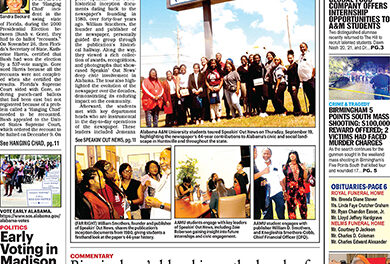
Photo: cyjlkdpb via 123RF
Welcome to the world of freelancing! As a freelancer, you enjoy the freedom and flexibility to work on your terms. However, managing finances with irregular income streams and fluctuating workloads is challenging. Here is practical advice on budgeting, taxes, and saving strategies to help you achieve financial stability in the gig economy.
Benefits and Challenges of Freelancing
Navigating the gig economy presents freelancers with benefits and challenges regarding financial stability. On the one hand, the gig economy offers unparalleled flexibility and autonomy, diversified income streams, and the ability to capitalize on your skills and expertise, potentially earning higher incomes than in traditional employment settings. Plus, remote work cuts commuting costs and offers tax deductions.
However, the gig economy also poses challenges, primarily income volatility and lack of benefits. Freelancers can achieve financial stability despite these challenges by implementing proactive financial management strategies.
Financial Management Strategies for Freelancers
Understand Your Tax Obligations
Familiarize yourself with the tax laws and regulations relevant to freelancers in your country or region. Determine whether you need to pay self-employment, income, and other applicable taxes. Once you understand how much you will potentially owe:
- Set Aside Money for Taxes. Allocate a percentage of your income, typically 25-30%, for taxes. Open a separate savings account and deposit tax payments regularly to avoid a financial crunch during tax season.
- Keep Organized Records. Throughout the year, keep accurate records of your income, expenses, receipts, and invoices to streamline the tax filing process and help you claim deductions and credits.
- Consider Engaging a Professional. Tax professionals provide personalized guidance tailored to your financial situation, maximizing deductions and credits while ensuring compliance with tax laws. Outsourcing tax preparation can save time, reduce stress, minimize the risk of errors or audits, help you plan strategically for retirement savings, and optimize your business structure.
Save for Time Off
While freelancing offers flexibility, scheduling regular breaks for rest and planning for needed time off for illness or family emergencies is essential. This includes:
- Building a Vacation Fund. Create a separate savings account dedicated to funding vacations and time off. Contribute regularly to accumulate enough money to cover travel expenses to enjoy well-deserved breaks without compromising your financial stability.
- Preparing for Sick Days. As a freelancer, you don’t have the luxury of paid sick leave offered by traditional employment. Plan for unforeseen illnesses or emergencies by setting aside funds to cover living expenses during periods of incapacity so you can focus on recovery without the added burden of financial worries.
- Considering Insurance Options. To provide additional protection in case of illness or injury, explore options such as short-term disability insurance or supplemental health insurance.

Photo: juliashan via 123RF
Saving for Irregular Income
Since freelance income can vary each month, build an emergency fund to cover unexpected expenses or dry spells. Aim to save 3-6 months of living expenses in an easily accessible savings account. This fund will provide a financial buffer during slow periods or unexpected emergencies.
Create a Realistic and Accurate Budget
Once you understand your tax implications and the importance of saving for those obligations, vacations, sick days, and irregular income, it is time to create a budget. By comparing projected freelance earnings to current expenses and financial obligations, you can assess whether freelancing alone can sustain your desired lifestyle or if it should complement other sources of income. Steps for creating a budget include:
- Track Your Income and Expenses. Keep a detailed record of your earnings and expenditures. Use accounting software or apps like QuickBooks or FreshBooks to monitor your finances. Review your monthly and annual expenses, including rent, utilities, groceries, transportation, child care, and debt repayments.
- Separate Business and Personal Expenses. In addition to earning enough to cover personal expenses, remember to include business expenses you take on as a freelancer, such as office equipment, software subscriptions, and transportation.
- Allocate a Portion of your Income for Taxes and Savings. Mike Michalowicz’s book, Profit First, offers valuable insights into prioritizing allocations from every payment received to ensure you have the necessary funds to cover tax obligations while building a robust savings cushion.
- Create a Realistic Budget. After assessing your current expenses, expected income, and needed allocations, you can create a budget that meets your needs.
Monitor Your Finances
By meticulously tracking income and expenses, you can identify areas for optimization and ensure they allocate funds effectively towards essential costs, savings, and investments. If your income isn’t what you anticipated, explore opportunities to diversify your sources. Consider offering additional services, selling digital products, or working a part-time job until your income increases. Also, review where you can cut costs in your personal and business life.
Achieving financial stability as a freelancer requires proactive planning, disciplined budgeting, and diligent money management. Remember to adapt and adjust your financial plan as your freelance career evolves, and stay focused on your goals.

SPONSORED BY JPMORGAN CHASE
The post Guide for Freelancers and Finance Management appeared first on AFRO American Newspapers.











